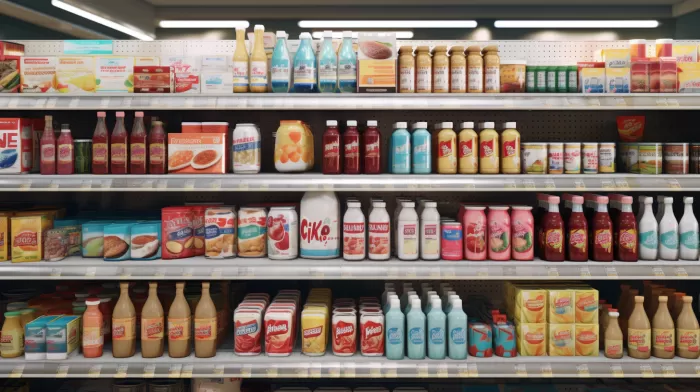With seemingly endless chemicals and additives hidden in your food, it’s increasingly difficult to keep track of what you’re actually consuming. Dangerous additives are likely in your food on a daily basis, often with misleading or unrecognizable names. Emulsifiers like polysorbate 80 and carboxymethylcellulose (CMC) are common in processed foods such as ice cream, salad dressing, shortening, condiments like ketchup, and even jam. These additives are added to smooth textures and maintain freshness, but they can have unintended side effects like killing off healthy gut bacteria, creating intestinal inflammation, and increasing the risk of colon cancer.
In a Georgia State University study, researchers fed mice a dose of polysorbate 80 and CMC similar to that which people consume in their diets. The additives drastically changed the gut bacteria, contributing to inflammation in their intestines and an increased likelihood of developing colon tumors. Previous research had discovered links between emulsifiers, intestinal inflammation, and altered gut bacteria, and the team suspected these alterations might lead to a greater risk of colon cancer.
The incidence of colon cancer has risen notably since the mid-20th century, strongly implicating the addition of emulsifiers to our food. Though research is ongoing to determine a more conclusive connection, the present evidence points overwhelmingly towards the harmful nature of these additives. Emulsifiers like polysorbate 80 and CMC can also be found in a number of prescription medications, vitamins, and supplements.
So, how do you avoid these dangerous additives?
The first step is to read your food labels vigilantly and be aware that emulsifiers often come with alternate names. For example, on food packaging, carboxymethylcellulose might be listed as cellulose gum and polysorbate 80 might be called Tween 80. Consuming foods that protect and promote diversity in your gut’s bacterial community, or microbiome, can also be beneficial. Walnuts, for example, are known for their cancer-fighting properties and act like a probiotic, keeping your colon healthy and preventing the growth of colon tumors.
By informing yourself and taking proactive steps to maintain a healthy balance of gut bacteria, you can avoid falling victim to the dangers of these harmful additives and reduce the risk of health issues like colon cancer. As with any aspect of your health, the key is being aware of what you’re putting into your body and making informed choices so that you can enjoy increased health and vitality.



